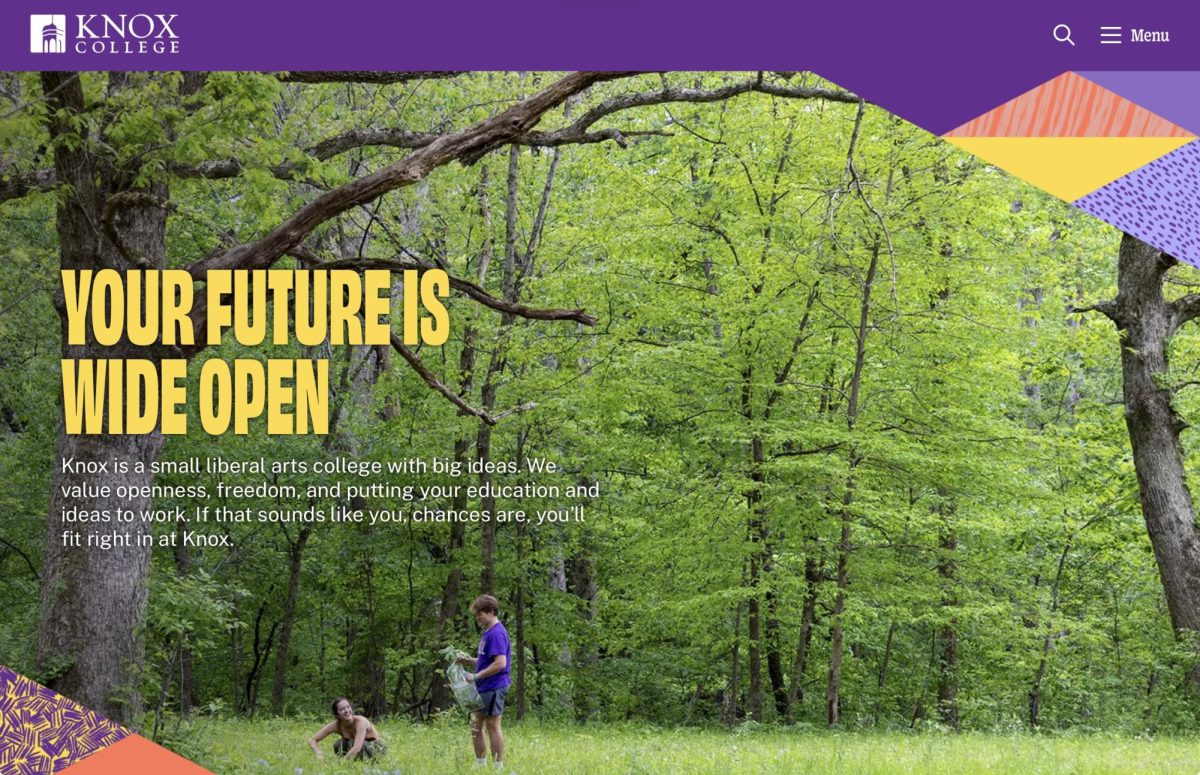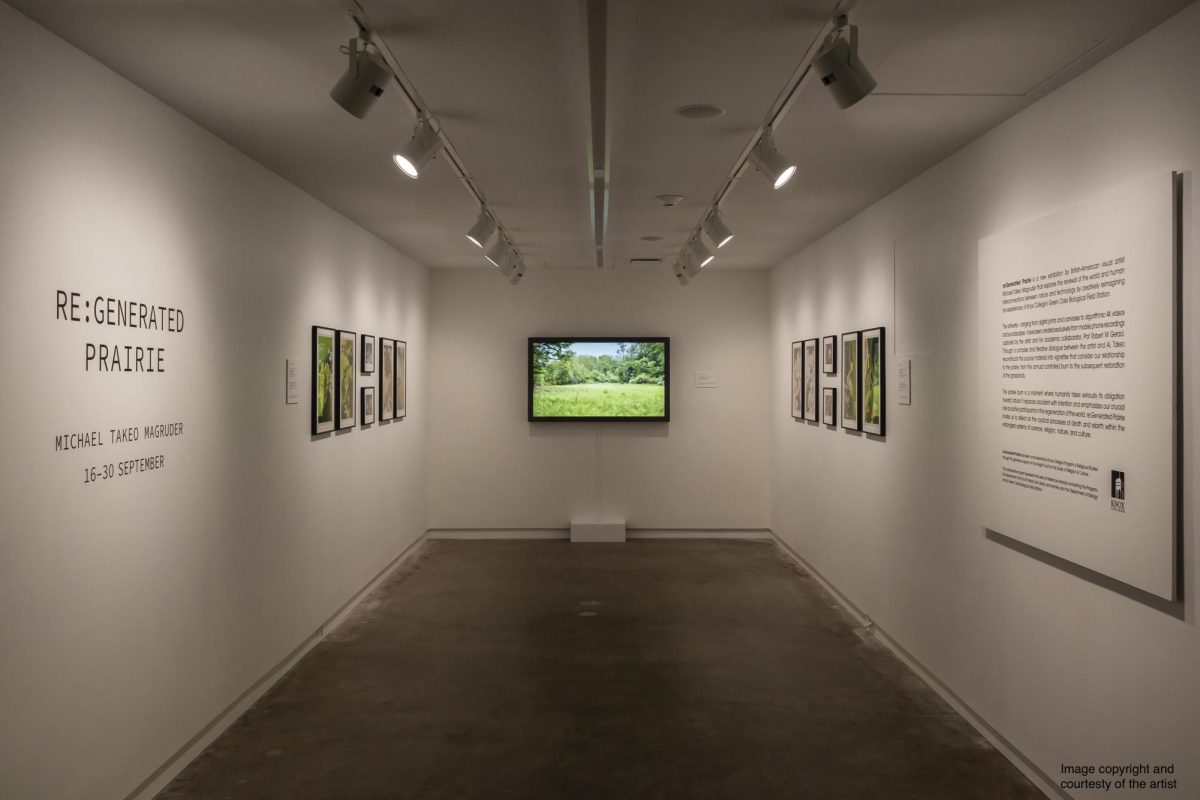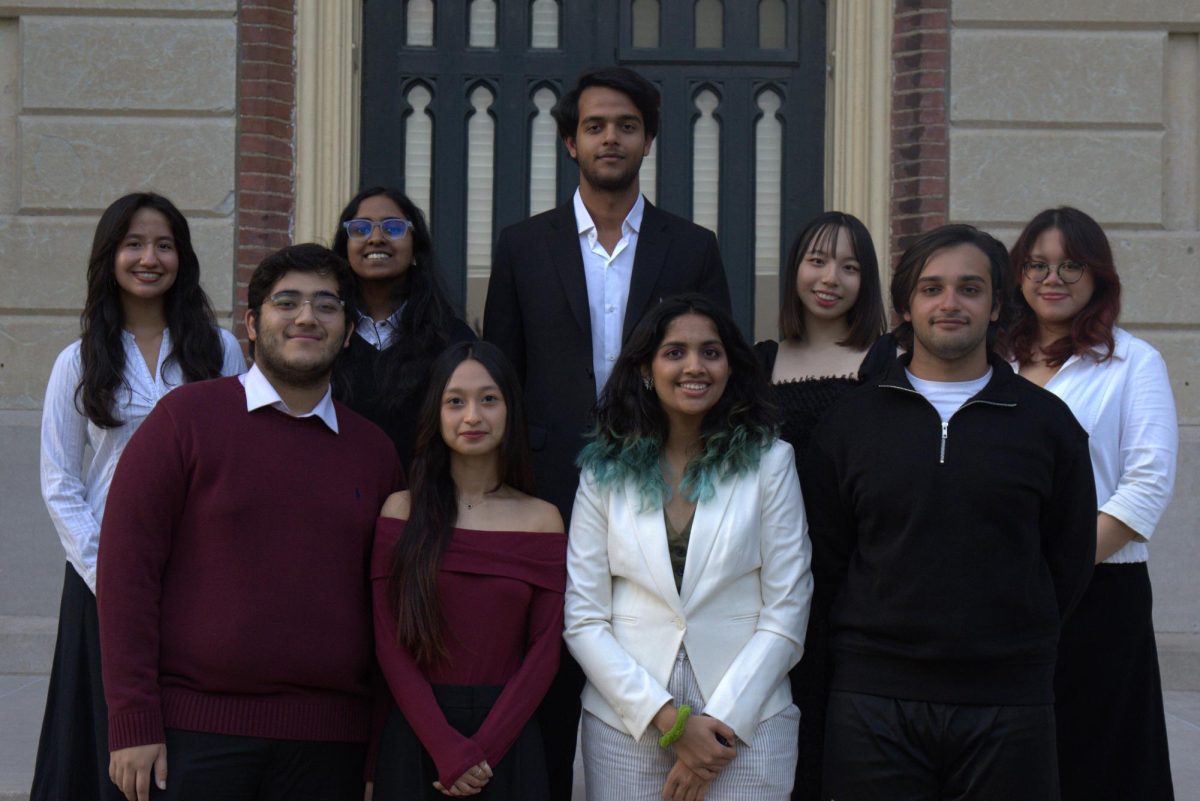The prompt asked students to write about advantages of slavery from the point of view of a slave
Disclaimer: The writers feel that there is no need for our voices to be inserted into this story. Instead, a brief synopsis of events will be followed by anonymous testimony from students and staff reacting to this prompt, mainly edited only for grammatical errors. In certain cases we have not included portions of submitted statements, to keep in line with editorial policies regarding what we can publish anonymously. Konrad Hamilton did not reply to add a comment.
A student in Professor of History Konrad Hamilton’s Slavery in the Americas course took to Twitter last week to post the prompt for the class’s final essay with a caption asking if they were wrong for refusing to write it. The prompt read as follows:
“I have some good news, and I have some bad news. Ready?
The bad news is that you are a slave, somewhere in the Western Hemisphere, between 1500 and 1888. I know that this must be rather disappointing for a number of you, but — as promised — there is also some ‘good’ news: you get to choose the specifics of where, when, and under what conditions you will be enslaved.
Describe the situation that you would most prefer, and explain why. Compare/contrast with situations that you would consider to be less desirable. Think carefully about as many variables as possible (e.g., country/region, period, culture, plantation/urban, field/house, special skills). Describe the specific characteristics of your ‘ideal’ master. You may choose to be a black, indigenous, or mixed-race slave, young or old, male or female – but you may not change your basic personality. Use as much specific information and as many sources as you can in answering this question.”
After students in the class expressed their discomfort and disgust with the prompt, it was edited to read:
“As we have studied slavery in the Americas this term, we have seen how enslaved people in different slave systems developed strategies and behaviors that helped them to survive, and arguably, improve their lives under extremely oppressive circumstances. In this essay, I want you to explore the tactics of enslaved people that you have learned about in this course. What strategies do you think you would pursue under the various conditions of enslavement described in your readings, in the Western Hemisphere, between 1500 and 1888?
Describe the situation that you think would be the most advantageous from your perspective and explain why. Compare/contrast with situations that you would consider to be less desirable. Think carefully about as many variables as possible (e.g., country/region, period, culture, plantation/urban, field/house, special skills). You may choose to look at this from the perspective of a black, indigenous, or mixed-race slave, young or old, male or female (to the extent that this is possible from the reading material) – but you may not change your basic personality. Use as much specific information and as many sources as you can in answering this question.”
After students brought the prompt to the attention of Michael Schneider, Dean of the College, it was edited once more:
“As we have studied slavery in the Americas this term, we have seen how enslaved people in different slave systems developed strategies and behaviors that helped them to survive, and navigate their lives under extremely oppressive circumstances. In this essay, I want you to explore the tactics of enslaved people that you have learned about in this course.
Describe two different slavery systems in the Western Hemisphere, between 1500 and 1888. Think carefully about the variables that distinguish one slavery system from another (e.g., country/region, period, colonial metropole, plantation/urban, field/house, etc.). Based on your readings, how did enslaved people alter their survival strategies based upon their own personal characteristics (e.g., racial or phenotype classifications, age, gender, etc.). Use as much specific information and as many sources as you can in answering this question.”
Additionally, Teresa Amott, president of the college, sent an email out to the community commending students for their courage in speaking up about the issue, apologizing that it happened, and laying out a few action plans in response to the prompt. The email was signed by Amott, Schneider and Tianna Cervantez, Executive Director for Diversity, Equity and Inclusion.
Schneider, Amott and Hamilton did not respond to emails asking for further comment on the situation. Students and some staff voiced their reactions to the prompt in an anonymous form circulated by TKS on various social media platforms. One email sent to the faculty distribution list was submitted with the responses.
Here are their responses:
“Why is the identity of the professor being protected? Students and alumnae should know who it is especially so we can hold Knox accountable for actions taken or lack thereof”
“While the act itself was somewhat difficult, the downplaying of the event was more aggravating than anything else. The email seemed to act as if the issue was solved and they were being generous to let us know about the event when, in reality, it is still a problem that has barely reached any conclusion.”
“This assignment felt like a fetish when I read it and I’m glad no one has to write that. It mostly seemed like the professor just tried to make the prompt more engaging but did so in a really tone-deaf way.”
“I am a student in the Slavery in the Americas class. The moment I read the original prompt for the first time, my jaw dropped and I felt as though it had to be some sort of joke—it was certainly worded like one. While my own mental health and well-being was not affected nearly as much as that of students of color, I was still extremely uncomfortable with what Professor Hamilton was asking of us….The complete disconnect between his intentions and the impact this prompt has had on all of us is shocking. These were not public, but the entire class has received emails from Tim Foster as well as Michael Schneider. Schneider has approved of the newest (the third) version of the prompt and has asked us to complete our essays by Tuesday. I cannot stress to you how exhausted I am by this. We now have three days to write this essay from the time we were given the prompt to it’s deadline and I’m unsure as to whether I will be able to complete it in time. It should not be the responsibility of the students to tell Tim Foster that we are still uncomfortable writing this essay, if for no other reason than its impact on our collective mental health. However, this responsibility has now been laid on our shoulders. I cannot speak for the other students in the class, but I’m incredibly hesitant to reach out because I am worried that they will simply not listen. Hamilton and Dean Schneider argue that they cannot let their students pass without giving them a final, but at this point in time, writing this final will only make the mental health of students even worse.”
“I am tired of being traumatized at Knox and no one taking responsibility for their actions. How am I supposed to continue to do my best at an institution that clearly does not care about my well-being. Teresa’s apology, if that’s what you want to call it, is forced and panders to the professor who messed up. He needs to be held accountable. We all know slavery is a hard conversation, this is not new information. This statement is not relevant. There are so many ways to teach about slavery WITHOUT traumatizing students. If Knox can’t figure it out, don’t make it a requirement for the Africana Studies major or remove the class all together.”
“I took this course when I was a first year in Winter 2017 and received the same exam question. Over the years, I’ve frequently thought back to that exam question and felt weird about it. At the time, I was a first year and Hamilton was the historian, so my thinking was—who am I to question him? In other words, I didn’t yet have the ability or confidence to question the assignment as it should have been. I’m REALLY glad people are challenging it now, especially considering Hamilton has been using this assignment for YEARS now without updating his teaching methods.”
“I’m a recent alum of Knox, graduating in 2018. After reading the email, I was not surprised that something so violent and traumatizing was included in an exam. The college was also not forthcoming with information. How long has this been an exam question for this course? Who is responsible for reviewing course materials? How are the students who had to experience this trauma in class being cared for at this time? As an alum, I feel like we constantly ask Knox to be better and they continue to miss the bar.”
“Teresa Amott needs to give the student who had a critical exchange with that professor when the prompt was given, $500 in compensation for having generational racial trauma wounds reopened in class by a faculty member. Any faculty member giving a prompt of that essence IS VIOLENCE towards BIPOC. Anything less does not constitute anti-racist work nor anything that follows the anti-racist commitments made by Knox as to date.”
“Knox College has a history of covering up its racism. They’ll talk about the Underground Railroad for hours but I never heard Ariyana Smith’s name and story until this year. I am afraid that this will get swept under the rug like everything else.”
“Holy moly. How did someone who has multiple higher education degrees manage to write this question and not think that it was potentially not a good idea? I’m honestly not sure if any amount of anti-bias training could remedy this. This professor owes a MASSIVE apology to all students and faculty who are POC and potentially should resign from their position at the college. Knox college should make it VERY clear that this kind of behavior is absolutely not tolerable or acceptable, and I think that more needs to be done to address it than just a ‘Knox College does not tolerate racism’ statement from Teresa.”
“I believe that this is the purest form of teaching and understanding our world and the culture, to put one in someone else’s shoes. This is far from racism in fact, it is quite the opposite of it. It is a difficult topic to be talked about but it is needed to learn. I think that it is also important to check the prompt also to look for any misunderstanding.”
“Well, the disputed prompt is very thought-provoking, but in a tone-deaf manner. Concepts of slavery are something almost all of us will never experience or truly understand ever, especially since there is only so much that can be explained from books, professors etc. There are many first person feelings, experiences and such that will never be able to be translated into a third person format, and to me, it feels like perhaps the prompt was trying to get at. That being said, this is definitely very tone deaf, especially if the class has people who are still very directly affected from slavery/suffer from it. I’d like to say we have moved on in society where we no longer need to put people ‘in the shoes of’ slaves to learn about them. With each year, we unearth more and more information about the all the experiences, good and bad, about slavery that the need to ‘act it out’ is hopefully not necessary.”
“A Black professor set this assignment, which, while offensive to some students’ sensibilities, asked hard questions and forced nuance into a conversation that’s usually superficial. Does anything else need to be said?”
“I think that the email did not accurately reflect the harm that the prompt caused. Using terms like ‘ideal master’ is incredibly problematic and harmful, and I’m still dealing with how that impacted me.”
“I was horrified by the situation. I am a student in that class and I could not believe that was an actual prompt. I am still appalled. We are still expected to complete an exam and have it turned in on Tuesday. We should not have to complete an exam question at all.”
“One of the most surprising things to me was that the email stated that this question was ‘relevant’ to the course content. I personally don’t understand how this sort of thing could be relevant on any front to any topic—what purpose could this possibly hold in the classroom that couldn’t be achieved in some other way? It seems glaringly obvious as an outsider that this question is inappropriate, so I’m very curious how it ended up on a test at all, honestly.”
“This is such a useless assignment that only serves to dredge up past and historical trauma.”
“How was this thought of as a good way to engage students in thoughtful academic work”
“This makes my heart ache. I am an alum American Studies Major Class of ’88. The prompt we reference used to be used in middle school classrooms. I ask what is it doing in the Knox College curriculum in 2021? The Knox College I knew was better than this.”
“Dear Knox Community,
I was profoundly disappointed by the decision of our administration to send out an announcement about a disagreement in class between students and a very respected and beloved member of our faculty.
All, or at least most of us, who teach in the social sciences and humanities (Elements 2, 3, and 5 for those of you who prefer the new Knox jargon) must deal with the balance between how to teach material in a way that is comfortable and intelligible to students, with the need to also engage students with the emotional reality of the often difficult and sometimes tragic lives of the real human beings they are studying.
It would be irresponsible of us as professors to teach an abstract, and therefore sanitized, version of the world in which we live.
Some of us face these emotional issues more frequently depending on the nature of the courses we teach. For instance, political violence is a necessarily unavoidable topic in some of the courses I teach. Over the course of my twenty-five years at Knox, I can think of three occasions when a student found the material we were studying to be highly disturbing, and I tried my best to talk it through with them, and to come up with some sort of alternative assignment. But I would not apologize for teaching the often terrible reality of the world in which we live.
In one of the cases the student complained to the Dean. The Dean then, appropriately, relayed the student’s concerns to me, and I did my best to address them, as did the professor in this case. In my case the Dean, also appropriately, did not send out an email to the campus bulletin regarding a disagreement about how to teach disturbing and emotionally charged material.
I cannot think of a more horrible topic than slavery, nor a more traumatic thing than being an enslaved person. I commend the professors who teach slavery, and who do not shy away from its horrors. While it is important to teach that subject from a theoretical perspective, it is important to not teach it only from a theoretical perspective. The least that could be done to honor the memory of those who endured slavery is to ask students to try to put themselves in their shoes. I commend the professor for coming up with an essay prompt that was designed to help students think about what it meant to be an enslaved person. Of course it is traumatic to even think about being a slave, much less being a slave.
We all need to do the hard work of creating racial inclusion. I commend both students and professors who try to work toward a more decent future. I hope that we will all recognize that working for a more decent future does not include publicly attacking any member of our community, professor or student, for doing just that. There was no legitimate reason for publicizing an internal classroom disagreement in this way.”
“Knox has added its name to the schools that have engaged in the careless act of harming Black students by requiring students to imagine being enslaved. This harm is specific to Black people with histories of enslavement. The question being posed by a professor is inherently violent. And it’s negligent. Why do Black students not deserve care? Why are there so many excuses given by this professor to justify harm toward Black students?
Black students being made to feel that their academic success is dependent on connecting to their ancestors’ trauma. Systemic [racism] against Black folks has not ended. In fact, the professor’s question highlighted that it is alive and well. Black students pay, as a student I paid, to have people be racist toward me. While this is the norm, it should not be normalized. I am tired by Amott’s response. Always civil, never bold against racism. Why is it that professors enacting harm get more patience than students who call out harm?
Knox College, where white liberal academics go to validate their racism. The fact that this is not surprising is telling.”







